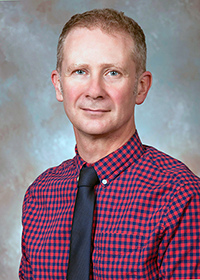Infectious Disease Lab – Dr. Aronson
ABOUT
Dr. Naomi Aronson’s laboratory positions its projects in the translational space, seeking to improve human health with innovation. It is currently studying cutaneous leishmaniasis (CL), one of the most common tropical diseases among our deployed military, and visceral leishmaniasis (VL), found in 19.5% of healthy soldiers returning from Iraq. There is no preventive vaccine or prophylactic medication, and treatment can be complicated depending on parasite species and clinical manifestations.
An additional research thrust is Bacille Calmette Guerin (BCG), the only licensed tuberculosis (TB) vaccine. TB is the leading global infectious diseases killer and a notable contributor to world antimicrobial resistance challenges. While TB is of low incidence in the United States, multidrug resistant TB in other parts of the world can pose risk to our fighting force.
Current research
Clinical Trials
We are testing BCG to prevent primary TB infection, as well as all causes of respiratory infection, in 2,000 travelers going to high TB burden countries. The lab is also using data collected from a controlled trial of BCG compared to a placebo in American indigenous children to determine whether BCG was protective of other pediatric infections through nonspecific effects.
Surveillance Projects
We are evaluating our military working dogs deployed to Iraq using banked serum and whole blood to test for VL and Bartonellosis. As part of this project, we are reviewing their medical histories and preventive measures pre- and post-deployment. We have developed a novel laboratory testing approach for Bartonella, which can be a fatal infection for dogs.
Our lab developed tools to test human blood for asymptomatic VL and has conducted surveillance of U.S. military deployed to Iraq. We are now looking at asymptomatic VL screening among those who deployed to Afghanistan, collecting potential risk factors and health information, matching that to research blood testing results. In addition, we are conducting a VL surveillance project among individuals who deployed to either Afghanistan and/or Iraq and then subsequently became immunosuppressed due to one of three conditions: TNF alpha blockers, solid organ transplant, or HIV infection.
Bench Research
We use a mouse model for CL or VL and are currently testing novel agents for the treatment of CL. We are exploring the role of bacterial coinfection in CL as well. In the process of this experimentation, we are also immunologically exploring conventional and unconventional T cells, Natural Killer cells in the immune response to CL, using flow cytometry and immunohistochemistry. Our collaborators will evaluate congruent transcriptomic profiling at the lesion level.
TEAM
Dr. Aronson has many years of working with trainees, including medical students, residents, and infectious diseases fellows on clinical research projects and she welcomes their interest.
Organic to the Aronson laboratory:
Fernanda Fortes de Araujo, Ph.D., scientist
Fernanda is a scientist who received her Ph.D. from the Rene Rachou Institute, Fiocruz-Minas in Belo Horizonte, Brazil. She was previously a postdoctoral fellow with the FDA in the laboratory of Alain Debrabant, studying Trypanosoma cruzi, and recently completed a postdoctoral fellowship in the Aronson leishmaniasis laboratory.
Qitong (Fiona) Wu, M.S., Research Associate
Fiona received her bachelor’s degree from University of Washington, Tacoma, where she studied phosphorylation in budding yeast. She went on to receive a master’s degree in biochemistry and molecular biology from Johns Hopkins University. Before joining USU, she worked with Professor Dipali Sharma investigating chemoresistance in triple negative breast cancer.
Stephen Davies, BVSc, Ph.D., Associate Professor, Division of Global Public Health
Dr. Davies received his professional degree in veterinary medicine from the University of Bristol in the United Kingdom and his Ph.D. in veterinary medicine from Cornell University. Following a postdoctoral fellowship at the University of California San Francisco, where he trained under the guidance of Dr. James H. McKerrow in the Department of Pathology, Stephen joined the faculty at Uniformed Services University in 2004. Stephen’s research interests span the breadth of parasitology from protozoa to helminths, or parasitic worms, as well as vector-borne parasites and the arthropods that transmit them. His research has focused on the molecular biology and immunology of helminth infections, and the molecular phylogenetics of arthropod vectors. He is particularly interested in parasite transmission between humans and both domestic and wild animals, and the role of vectors and the environment in these interactions, as defined by the One Health approach to understanding disease transmission.
publications
- Aronson NE, Billick K. Intralesional Antimonial Drug Treatment for Leishmania braziliensis Cutaneous Leishmaniasis: The Knowns and the Unknowns. Clin Infect Dis. 2023;77(4):583-588. doi:10.1093/cid/ciad248
- de Araujo FF, Safko J, Bolton J, et al. Development of a multiplex serological assay to detect immunoreactivity against a novel Bartonella species in military working dogs. Microbiol Spectr. Published online September 5, 2025. doi:10.1128/spectrum.00714-25
- de Araujo FF, Abdeladhim M, Teixeira C, et al. Immune response profiles from humans experimentally exposed to Phlebotomus duboscqi bites. Front Immunol. 2024;15:1335307. Published 2024 Apr 3. doi:10.3389/fimmu.2024.1335307
- Pelzer PT, Stuck L, Martinez L, et al. Effectiveness of the primary Bacillus Calmette-Guérin vaccine against the risk of Mycobacterium tuberculosis infection and tuberculosis disease: a meta-analysis of individual participant data. Lancet Microbe. 2025;6(2):100961. doi:10.1016/j.lanmic.2024.100961


